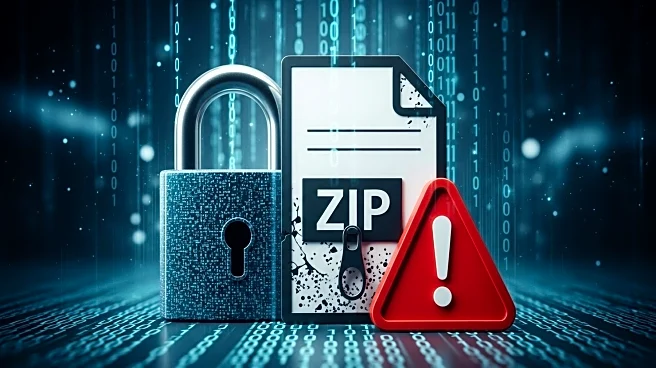What is the story about?
What's Happening?
A new phishing campaign has been identified, utilizing ZIP files containing malicious Windows shortcut files to deploy malware. According to an analysis by BlackPoint, attackers are using social engineering tactics to spread these ZIP files, which appear to contain legitimate documents such as payment records and passport scans. The shortcuts covertly launch an obfuscated PowerShell dropper that retrieves DLLs disguised as .ppt files. This method allows command execution without visible prompts or user permission requirements, exploiting user trust in document-themed content.
Why It's Important?
The spread of malware through seemingly legitimate ZIP files poses a significant threat to cybersecurity. Organizations are urged to take preventive measures, such as prohibiting LNK files in archives and implementing Mark of the Web. The campaign highlights the need for enhanced security protocols to protect against sophisticated phishing tactics. The prevalence of such attacks underscores the importance of vigilance in cybersecurity practices, as they can lead to data breaches and financial losses for businesses and individuals.
What's Next?
Organizations are advised to deny the usage of rundll32 and activate script block logging transcription to mitigate the risk of such attacks. As cyber threats evolve, companies must continuously update their security measures and educate employees on recognizing phishing attempts. The cybersecurity community is likely to focus on developing more robust defenses against these types of malware campaigns, potentially leading to new security technologies and strategies.
Beyond the Headlines
The use of social engineering in this campaign reflects a broader trend in cybercrime, where attackers exploit human psychology to bypass technical defenses. This highlights the importance of not only technological solutions but also training and awareness programs to empower users to identify and avoid phishing attempts. The ethical implications of such attacks raise questions about the responsibility of tech companies to safeguard user data and the need for stricter regulations in cybersecurity.














